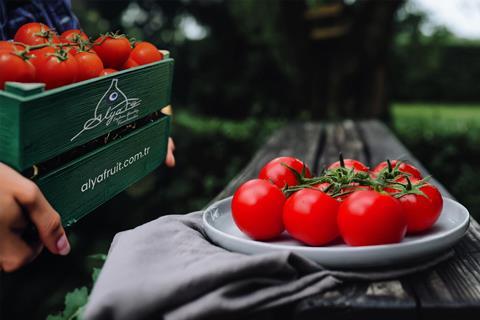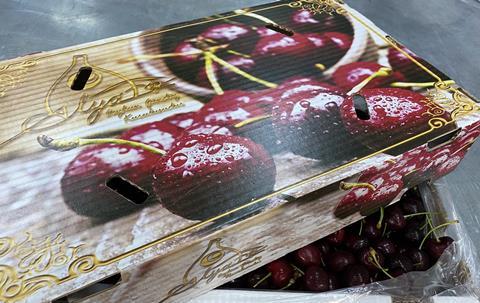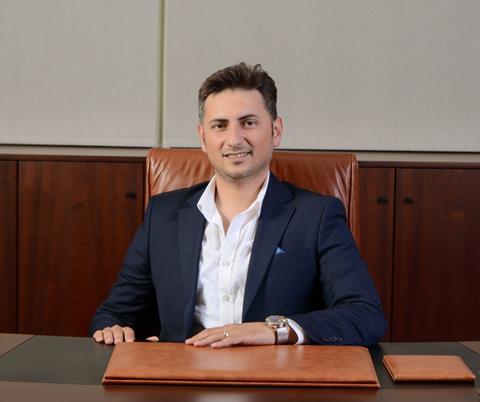In the face of today’s plethora of challenges, Turkish exporter Alya Fruits continues to be focused on quality, innovation and expanding its global reach, says CEO Ceyhun Gündüz

Alya Fruits, a Turkish exporter based in Bursa, is doubling down on quality, innovation and sustainability, according to CEO Ceyhun Gündüz, as it navigates a rapidly changing market landscape.
The company has been investing heavily in blueberry production over the past four years, and Gündüz is confident that it is on the verge of realising its full potential.
“We’ve been focusing on blueberries with the aim of raising the quality to the highest levels,” says Gündüz. “Our investments in production have reached maximum capacity, and we’re putting a lot of effort into improving shelf-life. Blueberries are a rapidly developing product for us, and we’re particularly focused on penetrating the East Asia market, where we see tremendous growth opportunities.”
The company’s approach to blueberries is not just about quantity, he said, but ensuring the product can meet the exacting standards of international markets, especially in Asia.
Challenges in figs, success in cherries
The Turkish fig season this year presented both opportunities and challenges, according to Gündüz. Despite a larger harvest than in previous years, the early start to the season created difficulties in some markets.
“The fig campaign started with a disadvantage this year due to early ripening caused by the weather,” he explains. “Early seasons are always tricky for black figs, and we saw a season that began early and ended earlier than expected. Some countries saw lower demand due to holidays, and that affected consumption.”
Despite these challenges, Gündüz remains bullish on the potential of the Asian market, a region where Alya Fruits has long focused its efforts.
“The Asian market has always been our target,” he says. “The demand for high-quality, fresh products is strong, and we’ve seen steady growth in countries like China and Japan. But you can’t just focus on quantity – you need to offer the best service, the highest quality and be able to respond quickly to market demands. That’s what sets us apart in the Far East.”

Alya Fruits enjoyed a strong cherry season, with volumes doubling compared with the previous year. According to Gündüz, the company was able to capitalise on an early cherry season in the Northern Hemisphere.
“The cherry season went much better than we expected,” says Gündüz. “We took advantage of the early start to the season and saw significant growth in our export volume. It’s always a positive when you can double your output, and we’re excited about the results.”
Climate change one challenge among many
As climate change continues to affect agricultural production worldwide, sustainability is becoming an increasing priority for Alya Fruits, according to Gündüz. Turkey, in particular, is seeing shifts in weather patterns that pose challenges for crop cultivation.
“Climate and sustainability are becoming more important with each passing year,” he says. “The natural balance that we rely on for agriculture is shifting, and these changes make it difficult to plan for the long term. We have to adapt, and we’re learning to adjust to these new conditions. But I’m optimistic – every challenge brings new learning experiences, and we will continue to find ways to make our operations more sustainable.”
Another pressing issue facing Turkish exporters is the rising cost of doing business. Gündüz points to high production costs and unstable exchange rates as two of the biggest hurdles.
“These factors are eating into our profits every day,” he says. “We’re managing to cope for now, but it’s a difficult situation. We need to find a way to bring costs under control if we want to stay competitive in the global market.”
Product focus shifting
Alya Fruits is investing in greenhouse-grown vine tomatoes and baby avocados, says Gündüz, two products seeing increasing demand internationally.

“We’re focusing on vine tomatoes, which are grown in controlled greenhouse conditions, allowing us to offer a higher-quality product,” Gündüz says. “Currently, we export primarily to the UK, Europe and Russia, but we’re also looking at new markets.”
As for baby avocados, the company has been steadily increasing production. Gündüz says that after years of innovation and development, baby avocados are now a growing part of Alya’s export portfolio.
“This product is still relatively new, but the demand is growing rapidly,” he explains. “What started as a small-scale operation four years ago with just 10 tonnes is now over 100 tonnes. The quality is exceptional, and customers love the taste. We’re expanding production and making this a sustainable part of our business.”



